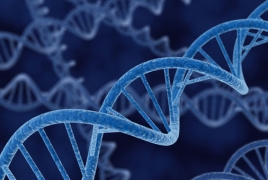Scientists design more effective version of CRISPR for gene editing December 13, 2016 - 15:07 AMT PanARMENIAN.Net - CRISPR is already effective enough to be used in experimental therapies for leukemia, cystic fibrosis, sickle cell disease and other conditions. But a team of scientists from Western University have created an even more effective version of CRISPR by adding an engineered enzyme called TevCas9, Engadget said. The current version of CRISPR uses an enzyme known as Cas9 to cut DNA segments, such as the specific parts that cause genetic disorders. Western's scientists created TevCas9 by combining Cas9 with another enzyme called I-Tevl. According to the team, the next-gen CRISPR is more precise and more efficient. Plus, it has the potential to prevent genes from repairing themselves. Lead scientist David Edgell explains: "The problem with CRISPR is that it will cut DNA, but then DNA-repair will take that cut and stick it back together. That means it is regenerating the site that the CRISPR is trying to target, creating a futile cycle. The novelty of our addition, is that it stops that regeneration from happening." See, the upgraded CRISPR cuts genes in two places instead of just one to make it tougher for self-repair to kick in. The team still has to confirm that through further testing, but as the team says, that "is the hope and the expectation." Azerbaijani authorities report that they have already resettled 3,000 people in the Nagorno-Karabakh town of Stepanakert. On June 10, Azerbaijani President of Azerbaijan Ilham Aliyev will leave for Turkey on a working visit. Azerbaijani President Ilham Aliyev arrived in Moscow on April 22 to hold talks with Russian counterpart Vladimir Putin. Authorities said a total of 192 Azerbaijani troops were killed and 511 were wounded during Azerbaijan’s offensive. Partner news |